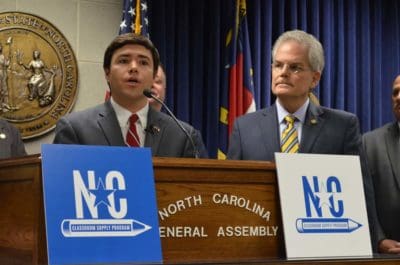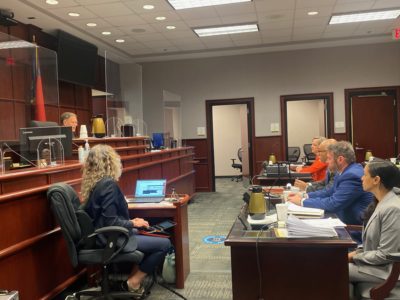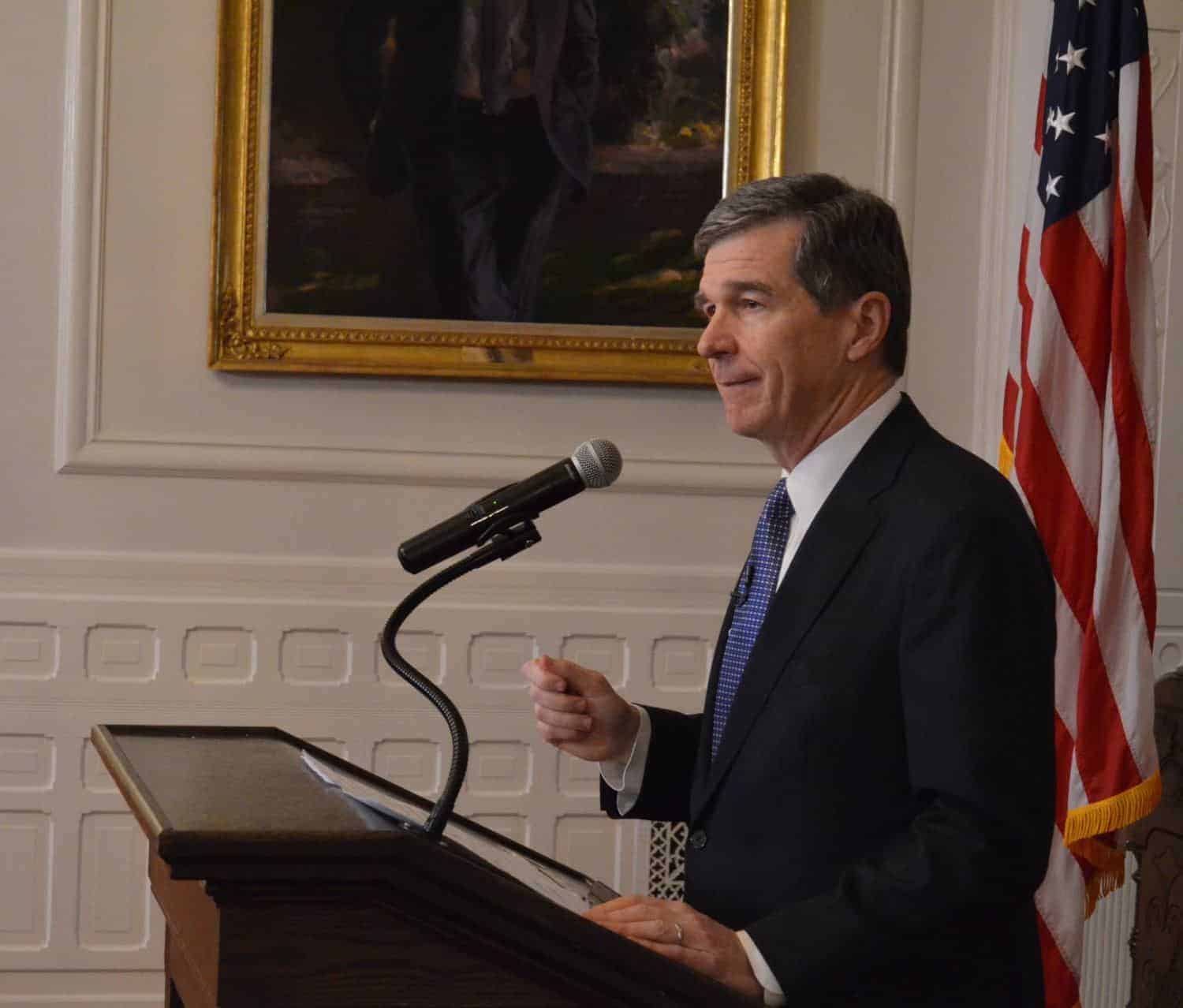Governor Roy Cooper announced at a press conference this afternoon that he will allow to become law the bill that ushers in a plan to solve the class size crisis, but he had a lot of criticism for how Republican lawmakers went about constructing the legislation.
Cooper started by discussing the class size plan, which he considered a good part of the bill.
“Today, I want to assure teachers and parents that they can focus solely on educating their kids, instead of begging the legislature to deal with this class size problem that the legislature itself created two years ago,” he said.
The class size issue dates back to 2016 when the General Assembly mandated class size restrictions in grades K-3. Districts across the state said the change meant they would have to eliminate extracurricular teachers in subjects like music, art, and physical education, and they would need extra space and classrooms to meet the mandate. Districts receive little state funding for facilities, so they would be left paying for any additional buildings or classrooms themselves.
Last year, the House tried to reduce the restrictions with House Bill 13, but the Senate changed the bill and the version that passed only delayed the most strict restrictions for a year.
The education portion of the bill passed this week phases in implementation of lower class sizes in grades K-3 over the next four years (with nothing changing next year) while providing almost $60 million in additional funding for enhancement teachers (art, physical education, music) next year.
Henceforth, enhancement teachers will be funded by a separate allotment from classroom teachers. Previously, funds for the two were combined in one allotment. The amount of money for enhancement teachers would increase each year depending on the needs of districts. School districts would also continue to get about $70 million each year for hiring K-3 teachers to meet class size mandates. In total, under the plan, school districts would get $250 million in additional recurring funds by the 2021-22 school year.
Lawmakers also added into the bill more money for NC Pre-K, which will eliminate the current waiting list for the program. This was part of Cooper’s 2017 budget plan, though he said at the press conference that his plan would have moved faster than Republican’s.
Because of the class size plan and NC Pre-K money, Cooper said he would let the bill become law, but he went on to sharply criticize the rest of the bill.
“The rest of the bill’s bad provisions are political attacks and power grabs. Period,” he said.
The class size bill had two additional provisions, one related to money tied to the Atlantic Coast Pipeline, and one on the Board of Elections and Ethics Enforcement.
The provision related to the Atlantic Coast Pipeline concerns almost $60 million of funds that the bill will divide among school districts in eight counties where the pipeline will be placed. It takes away the Governor’s discretion with regards to the funds. The Governor’s office had said it would use the money on economic development in the eight counties, renewable energy advancement, and to address environmental damage related to the pipeline.
The Board of Elections provision adds a ninth seat to the Board of Elections and Ethics Enforcement, which is divided four to four between both parties. The ninth seat would be unaffiliated.
Cooper said the courts would find the Board of Elections move unconstitutional, and that Republicans used the class size bill to sneak it into law.
“Using our kids and now our schools as tools for their power grab and their partisan attacks is pretty low. Even for them,” he said of Republican lawmakers.
Cooper also criticized some of the education portion of the bill, noting that it provides no money for funding the additional facilities districts may need to meet class size mandates. He also said that many districts are facing teacher shortages, and while the class size reduction will require more teachers, it does nothing to help districts figure out where to find them.
“A smaller class size doesn’t do much good without a teacher in it,” he said.
See what legislators in the House and Senate had to say about the bill here and here.
Recommended reading




